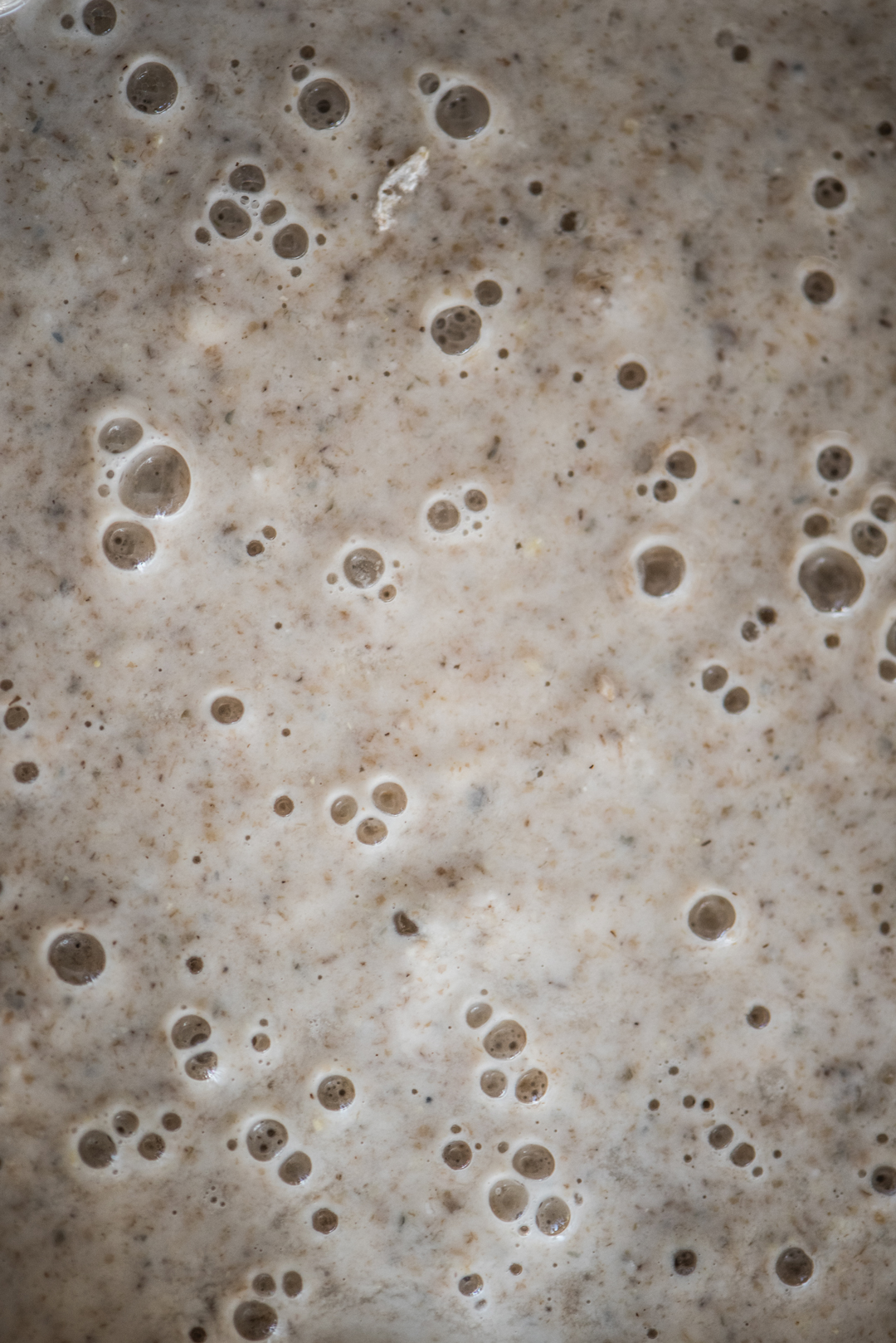BACK TO BREAD
STUDY EXPLORES EVIDENCE THAT SOURDOUGH BOOSTS DIGESTIBILITY
BY GEOFF GEDDES
Most people love bread and happily make it a part of their daily diet. A new research project aims to help those who may have difficulty digesting wheat by determining whether the process used to produce sourdough bread can allow them to more fully enjoy it.
Funded by the Alberta Wheat Commission (AWC), Saskatchewan Wheat Development Commission and Minnesota Wheat Research and Promotion Council, the project is examining the sourdough bread fermentation process that is known to break down proteins and carbohydrates in wheat flour that cause wheat sensitivity. The focus is on whether this fermentation process is sufficient in reducing these adverse effects on digestion.
Heading the project is Michael Gänzle, professor and Canada research chair in food microbiology and probiotics in the department of agricultural, food and nutritional science at the University of Alberta. “In terms of developing fermentation technologies, we will base our work on technologies that have been around for a couple of hundred or thousand years,” he said, referring to the process of making sourdough bread. “We will try to develop hypotheses on how this fermentation makes bread more digestible.”
“Many sourdough bakers tell me consumers that think they’re intolerant to wheat or gluten can tolerate their bread,” said Gänzle. “That means something must be different about sourdough bread that makes it more digestible and more tolerated. But we really don’t know how to pinpoint the causes.”
The project will begin with two of Gänzle’s students carrying out the fermentation of sourdough. Each will analyze one of its components: carbohydrates and proteins.
The research is meant to provide a scientific perspective on the anecdotal evidence that sourdough is more digestible than other types of bread. At the same time, it could offer answers to people with digestion issues.
“I would think that if there is proper scientific documentation, that a good part of the wheat- or gluten-intolerant people who currently avoid wheat products may realize that they tolerate it if it is properly processed and fermented.”
This project fits nicely with the mandate of AWC. “Allowing more people to eat wheat is part of our mission,” said Lauren Comin, AWC research manager. “Farmers love their wheat crops and the products their wheat produces, and take great pride in them. Wheat is nutritious, economical and delicious, but a portion of the population feels they can’t consume it because of how it makes them feel.”
Many of those people, said Comin, miss bread and want to eat it. The objective of the sourdough project is to help them make a comfortable return to eating the product they love. “If the fermentation process can enable more of the public to enjoy wheat and bread, it’s a good-news story for consumers, farmers and the baking industry,” said Comin.
The project notably takes a made-in-
Alberta approach. “It’s nice to support local researchers, especially someone like Dr. Gänzle who is a leading scientist in food fermentation and has a wealth of knowledge about sourdough fermentation technology,” said Comin.
Depending on the project’s outcome, it may also help the grain sector regain market share from gluten-free crops and food products. “If we can credibly make the case that protein degradation during sourdough fermentation increases tolerance, it would offer alternative ways to make wheat digestible to most of those who currently think it is indigestible,” said Gänzle. “In that respect, I think we could fundamentally change the way the grain industry is operating.”
While the prospect of once again enjoying fresh bread with its mouthwatering aroma is appealing for those who’ve given it up, this sourdough project may produce the equally sweet smell of success for bakers and wheat farmers.






Comments